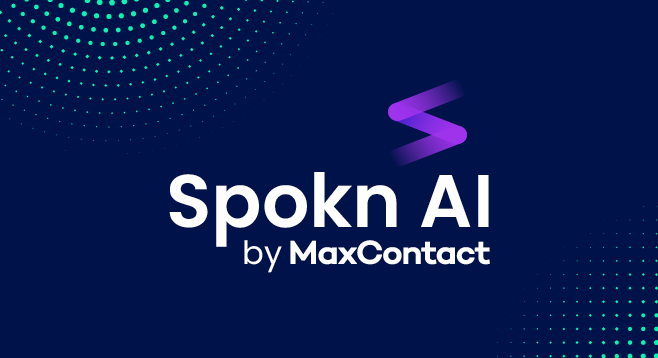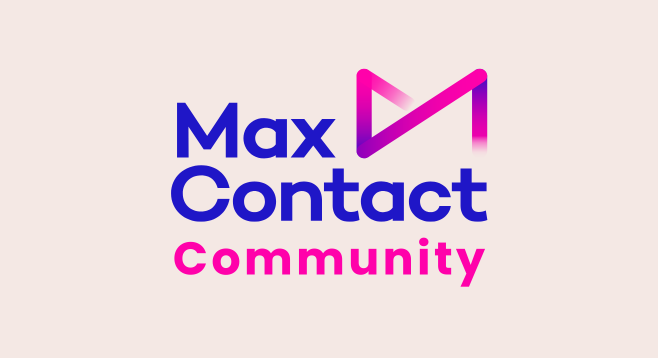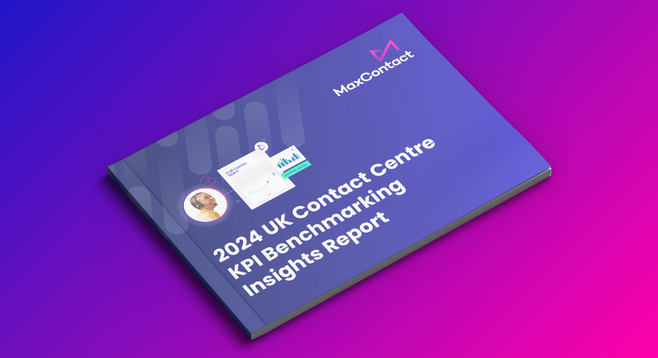Contact centres can be high-pressure environments, with plenty of challenges to tackle; managing customer interactions, staying compliant and helping agents perform at their best, to name a few. That’s where speech analytics comes in.
By recording and transcribing 100% of customer conversations, analysing sentiment, categorising topics and ranking agent performance, speech analytics helps contact centre leaders uncover actionable insights, make smarter decisions and optimise business operations.In this article, we’ll explore 10 practical ways our speech analytics platform – Spokn AI – can be used to transform the way contact centres work. From improving compliance checks to empowering agents and enhancing sales strategies, there’s a lot to gain from this powerful technology.
1. Speeding up call quality assessments
In traditional quality assessments, quality assurance (QA) teams are often required to listen to hundreds of call recordings to evaluate, understand agent-customer conversations, and assess the quality of the call. This manual process is time-consuming, especially for call centres dealing with high call volumes.
Speech analytics speeds up the QA process by transcribing speech-to-text, with every call transcribed into a full text version. Thanks to text transcriptions, QA teams can read through calls – which takes 50% less time than listening to them. This is because QA teams can skip directly to specific points in the conversation that need attention.
By searching within transcripts for specific phrases or keywords, it is much easier and quicker to find sections where issues have arisen, saving significant time but without sacrificing detail.
2. Keyword tracking for compliance
Staying compliant is crucial for contact centres, particularly in industries with strict regulations such as sales, collections, or finance. Agents often need to say specific phrases or mandatory statements during calls – for example, those required by the Financial Conduct Authority (FCA) or Ofcom guidelines.
MaxContact’s Spokn AI makes compliance easier to monitor and achieve, as it can be set up to track and filter certain keywords across all call transcripts. Compliance teams can set up the software to flag calls where those important phrases are missing or not used correctly.
This means you can quickly spot and fix potential compliance issues without spending hours manually checking calls. It’s a simple way to reduce risks, save time, and make sure your team is consistently ticking all the right boxes.
3. Keyword tracking for vulnerability detection
Contact centres need to identify and provide special care for vulnerable customers, such as those who express concerns related to financial or emotional hardship. This is where the ability to search for phrases or mandatory statements across transcripts once again supports the process.
Using speech analytics and keyword filtering, it is possible to detect sensitive language within conversations, flagging words and phrases that may indicate vulnerability. By automating this process, speech analytics software helps agents and supervisors identify potentially vulnerable customers quickly, allowing them to respond with empathy, follow specific support protocols, or even escalate the conversation to a specialist.
This targeted approach improves customer care and means vulnerable individuals receive the assistance they need.
4. Optimising sales playbooks
For sales and collections teams, the ability to handle customer objections effectively can have a huge impact on call outcomes. This is where speech analytics steps in to give agents an edge. By analysing call topics, customer objections and sentiment trends, tools like speech analytics can help call centre supervisors to uncover what’s working (and what’s not) in customer interactions.
Senior call centre leaders can use these insights to tweak call centre scripts, refine sales tactics and even create “battlecards” to tackle competitor comparisons head-on. These resources and insights are then shared with call agents.
On top of that, speech analytics can indicate how call agents respond to objections by looking at phrase level sentiment, helping pinpoint successful techniques and areas for improvement. With these insights, teams can continuously optimise their playbooks, leading to smoother calls, better outcomes and more conversions.
5. Improving agent performance through sentiment analysis
Helping agents improve starts with understanding where they might be struggling or excelling. Sentiment analysis does this by breaking conversations into phrases and identifying words of positive or negative sentiment post-call. It draws attention to areas where an agent might be lacking empathy, patience, or clarity – all key factors that impact how customers feel during a call.
When speech analytics software uncovers calls with high customer frustration or negative sentiment, call supervisors can step in with tailored coaching. Whether it’s working on tone, handling sensitive situations, or improving listening skills, this focused feedback helps agents refine their approach. The result? Happier customers, stronger relationships and call agents who feel more confident.
6. Identifying what works well to amplify success
Improvement is important, but so is recognising what’s already working. Speech analytics helps teams to see moments of positive sentiment in calls, showing where call agents have handled objections and sensitive interactions effectively, striking the right chord with customers.
By considering the ‘why’ behind these successful interactions, managers can uncover tactics, language, or approaches that deliver great results time and time again. These insights can be shared across the team to raise everyone’s game, and they’re also an important resource for marketing or sales teams.
Whether it’s refining scripts or crafting new campaigns, using proven techniques ensures greater consistency and impact across your contact centre.
7. Driving operational efficiencies
Efficiency is key in contact centres, but it shouldn’t come at the expense of quality. Speech analytics helps strike the perfect balance, with tools like call summaries, topic detection and sentiment analysis. These features allow call centre supervisors to identify common call topics and recurring customer issues.
Armed with this data, managers can design targeted training and streamline processes to ensure agents are ready to tackle frequent queries right away. This leads to fewer call transfers and more first-call resolutions, cutting down handling times while boosting customer satisfaction. The outcome is a more efficient operation that saves time, resources and costs – all without compromising on quality.
8. Gaining insight into team dynamics
Understanding your team’s performance isn’t just about numbers or individual performance – it’s about seeing the bigger picture. With speech analytics, call centre managers have a clearer view of overall team performance and can break down calls by agent, objection type or campaign. This level of detail helps uncover collective team performance as well as each agent’s individual strengths and areas where they may need extra support.
By tracking objection trends, comparing metrics across agents and teams, and analysing how individuals handle challenging situations, call centre leaders can make coaching much more targeted. Instead of a one-size-fits-all approach, these data-driven insights allow team leaders to tailor their feedback, helping every agent play to their strengths while improving in areas where they struggle. This leads to a more skilled, confident and well-rounded team.
9. Empowering agents to self-improve
Speech analytics isn’t just a tool for managers – it’s also a powerful way to help agents grow and improve. With features like call recaps, sentiment insights, and objection tracking, managers can share clear, objective feedback based on real data from their agents’ interactions.
By providing tailored feedback, managers can help agents spot patterns, identify areas for improvement and refine their skills – whether it’s handling objections more effectively, improving tone, or building stronger rapport with customers.
This personalised coaching creates a sense of accountability and motivates agents to continuously grow.
With clear, actionable feedback, agents can deliver better customer experiences and contribute to the team’s success. Plus, happier, more capable agents are less likely to burn out, which helps reduce turnover and maintain a strong team.
10. Conducting market research to inform growth strategies
Spokn AI is a powerful tool for uncovering what your customers really want. By evaluating recurring topics and sentiment trends across conversations, it helps contact centres build a clear picture of customer needs, preferences and pain points.
With advanced topic detection and transcription capabilities, speech analytics empower businesses to spot emerging trends and patterns that might not be immediately obvious. Whether it’s identifying new product demands, spotting service gaps, or understanding shifts in customer sentiment, these insights are invaluable for shaping future strategies.
This customer-first approach gives contact centres a new-level of visibility into customer information. Often, customer information is recorded in siloed notes (particularly in hybrid working environments) making them inaccessible at a top data level. Speech analytics aggregates and analyses conversations, uncovering actionable insights into sentiment, trends and preferences. This enables businesses to adapt to market changes, create targeted campaigns and design products and services that truly meet customer needs.
Speech analytics is powerful software that makes the way for smarter, more efficient and more impactful operations in your contact centre. By analysing 100% of customer interactions, platforms like Spokn AI offer insights that help tackle the unique challenges of a fast-paced call centre floor, from improving compliance and agent performance to refining sales strategies and uncovering customer needs.
The key to success lies in using these insights to take action: refining processes, tailoring coaching and aligning your strategy with the data. Not only does this lead to better outcomes for your team and business – it also creates a stronger, more positive experience for your customers too.
As customer expectations grow and contact centres become more complex, embracing tools like Spokn AI can give you the clarity, confidence and competitive edge you need to thrive.
By leaning into the capabilities of speech analytics, you’re not just keeping up; you’re staying ahead.





